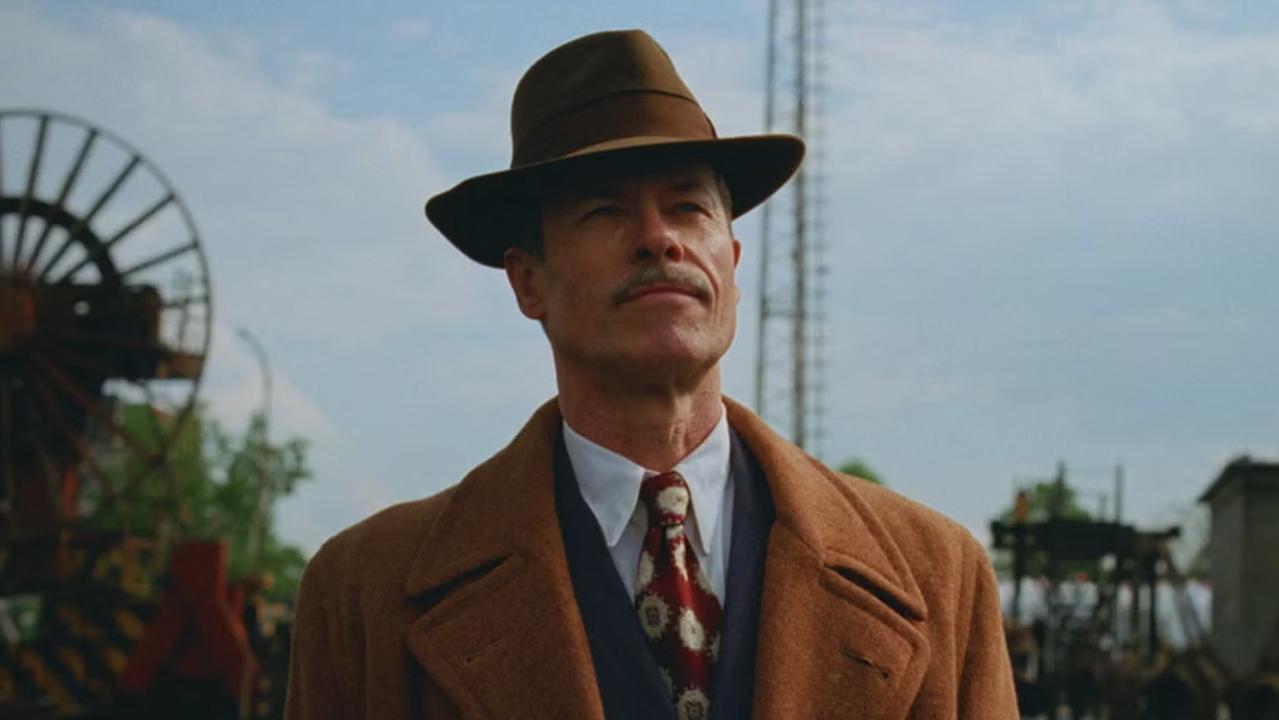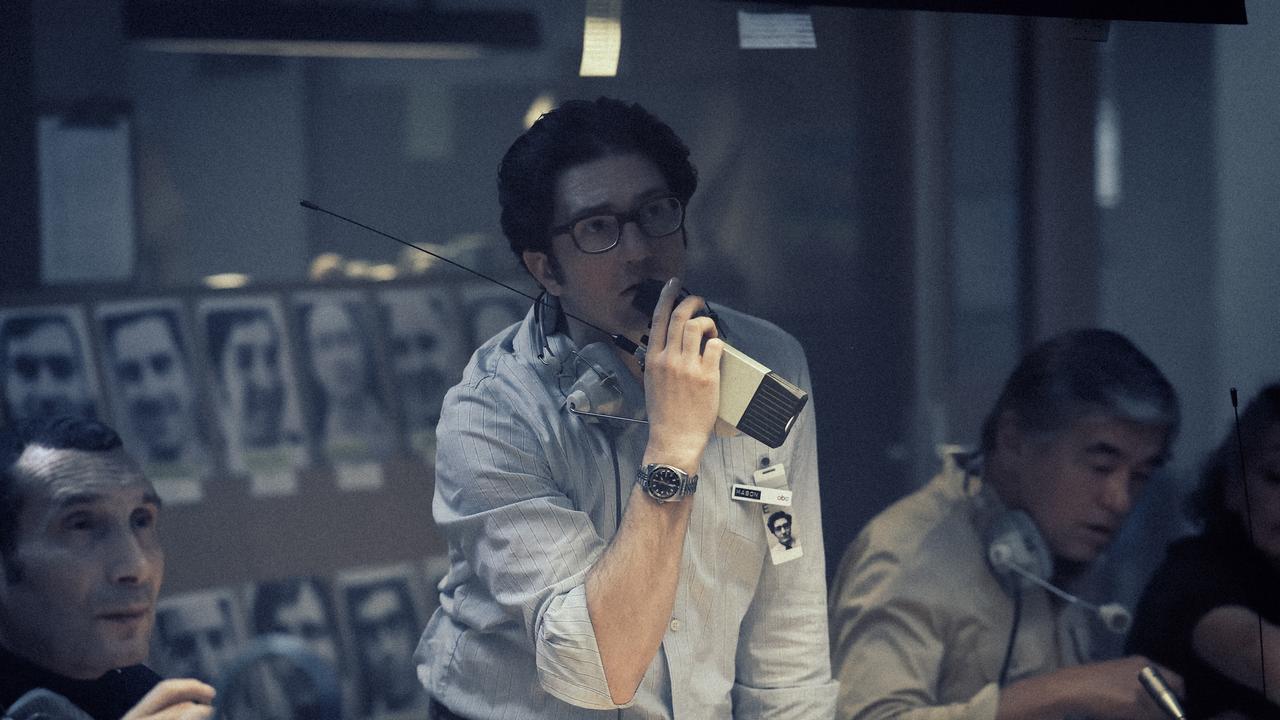Alex & Eve: Comedy comes as cultures collide
Preponderance of Aussie stage productions being adapted into films reaches conclusion with adaptation of Alex and Eve.

The preponderance of Australian stage productions being adapted into Australian films this year reaches its unnatural conclusion this week.
After main-stage productions including Last Cab to Darwin, Holding the Man, Ruben Guthrie and The Daughter (originally The Wild Duck) comes the release of Alex Lykos’s adaptation of his hit play Alex & Eve .
Lykos came to screen the hard way. The aspiring screenwriter and director gravitated to theatre a decade ago when he realised it was “tangible”. “I could write a piece and put it on six months later and see whether it works,” he says.
His observation of the film industry suggests that wasn’t the experience for Australian films, which tend to spend more than three years being developed. “And at least you’re doing what you want to do and you’re learning about craft and whatnot,” he says.
This week, the adaptation of his stage tale about a Greek Australian boy and his potentially doomed romance with his Lebanese Australian Muslim girlfriend screens in cinemas, having opened the Greek Film Festival, with a budget, experienced creative team and a sheen that makes Lykos’s first amateur production a distant, yet still fond, memory.
Director Peter Andrikidis (The Kings of Mykonos (or Wog Boy 2), Catching Milat, Underbelly and East West 101) surrounds the film’s young leads, Richard Brancatisano and Andrea Demetriades, with screen veterans including Tony Nikolakopoulos, Zoe Carides and George Kapiniaris and an accomplished crew, including cinematographer Joseph Pickering.
Andrikidis brought the expectation the film wouldn’t be a low-budget, guerilla attempt, Lykos says. “He brought experience, as a captain who leads his troops. I think about when we first did that stage show, we made a lot of mistakes and we got better,” he says. “When you’ve got someone who knows what they’re doing, it calms the situation a bit.”
Lykos says he desired the best film that could be made of his stage play. “My expectations are quite high and I’ve been one of those vocal people complaining about local cinema and its quality,” he says. “So I feel a responsibility to make sure that it does do well and the work is good, otherwise I’m just a hypocrite.’’
It would be enough for him merely to be satisfied with his achievement bringing Alex & Eve to the screen. The original stage show spawned two sellout sequels in 2007-12, moving from Sydney’s humble Sidetrack Theatre to the Enmore and Factory theatres and touring nationally. It is estimated to have played to between 25,000 and 30,000 people.
The story has triumphed where so many others have failed or given up. Lykos, who abandoned his teaching career only this year, approached all the obvious prospects, including the Darlinghurst Theatre and Belvoir, a decade ago with his play.
After their rebuffs, he approached local theatre companies and even they said no. One Greek theatre company told him his cross-cultural farce was not funny enough and too preachy.
A friend suggested they stage it themselves, despite their inexperience. Lykos recalls the memory of clutching on to his $300 deposit, unwilling to hand it to the manager of Balmain’s Cat and Fiddle Hotel, where they would stage their first production.
“That was the moment though,” he says. They sold out the 40-seater to family and friends but cancelled the second night because of piffling bookings.
Then, in the second week, improbably, word of mouth hit and they sold out. The amateur show snowballed until a legitimate four-week season in 2008.
“And by 2009, the Lebanese community got wind of it, and I gotta tell ya, to see, particularly in today’s climate, rows of women with hijabs sitting side by side with Greeks laughing and carrying on was fantastic,” Lykos says.
“And I remember when our ‘Anglo’ audience started coming and saying they love the show but they really loved the way the audience engaged with it and let go.”
He laughs at the recollection of a few family friends warning him back in 2006 that “the Lebos are going to come after you”. Of course they didn’t; the play and film are too sweet-hearted and humorous to offend. Lykos recounts only two complaints during the play’s many years — and they were from Greeks.
Lykos continued to tinker, always watching the audience response and parlaying his learnings into the stage sequels Alex & Eve: The Wedding in 2009-10 and Alex & Eve: The Baby in 2011.
Lykos also worked on a screenplay once he realised the stage play was solid although he admits “I didn’t really push it”. When producer Murray Fahey and Andrikidis joined the production, its momentum became undeniable.
Lykos clearly is still coming to terms with the film caravan stampeding along though. He admits to being a control freak who has had a little trouble seeing others direct and take his lead role.
But he understands his present position in film is precisely where he was in theatre 10 years ago. And in a decade he had learned much about writing for the stage. Now he hopes to use it in film.
Alex & Eve is an amalgam of the first and second original plays but only after an unlikely source gave him a crucial tip.
Initially, Lykos adapted only the first play for screen but it ends with the young couple splitting and he realised there was something wrong with the screenplay but he couldn’t crack it — until his mother happened to watch My Big Fat Greek Wedding on television.
She told him it was OK but the only scene she liked was when the American family met the Greek family. “I thought: ‘Right, we’re doing a story about two people that fall in love from two different cultural backgrounds but their families never meet,’ ” he says.
He rewrote the screenplay to have the Greek and Lebanese families meeting, with farcical consequences, and he had a film. And he has a film with ready-made brand recognition.
“Absolutely,” he says. “Provided the film does its job, that word of mouth will spread. And the good thing about the ethnic audience is they don’t see their stories on screen often, so when they do see it, they come in droves.”


